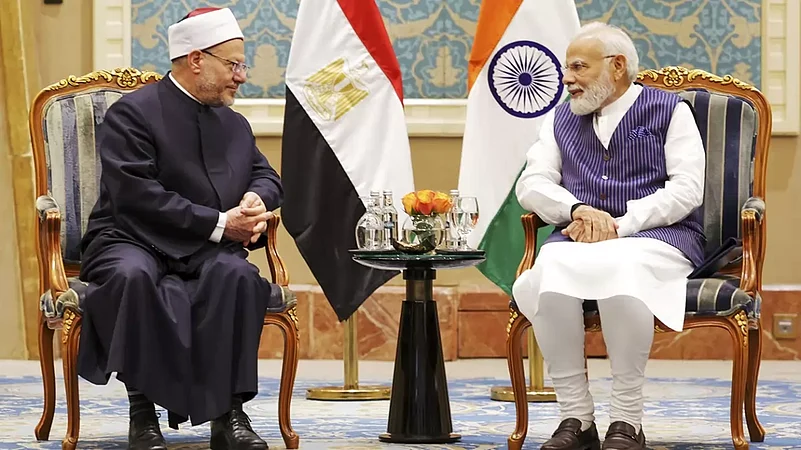Egypt's Central Bank is hiking interest rates as the cash-strapped North African country continues to battle surging inflation and a depreciating currency.
In an online statement late Thursday, the bank's monetary policy committee said the most basic lending rate, the overnight deposit rate, was increased from 18.25 per cent to 19.75 per cent.
Egyptians, particularly working class households, are struggling to keep up with rising prices, which have soared since Russia invaded Ukraine last year. The annual inflation rate reached 36.8 per cent in June, up from 33.7 per cent recorded in May, according to data released by the state-run Central Agency for Mobilisation and Statistics.
The prices of basic items such as grains, meat, poultry, fish and fruit have risen drastically in recent months.
“Given the balance of risks surrounding the inflation outlook, the MPC judges that a policy rate hike ... is warranted in order to contain the inflationary pressures,? Thursday's statement said.
Over the past year, Egypt's central bank has sought to offset rising inflation by hiking its main interest rates. The last hike was in March.
Egypt is the world's largest wheat importer, with most of its imports traditionally coming from Ukraine and Russia. Since conflict in eastern Europe broke out in February 2022, the Egyptian pound has lost over 50 per cent of its value against the dollar.
The country's currency slide accelerated after Egypt's government announced it had reached a USD 3 billion bailout agreement with the International Monetary Fund in October.
In exchange, the Egyptian government agreed to put in place several economic reforms, including a shift to a flexible exchange rate.
Despite making Egyptian goods cheaper and more competitive internationally, the depreciation has also increased the price of most imported commodities, including raw materials and basic foods.
Nearly a third of Egyptians live in poverty, according to official figures.
Egypt Raises Interest Rates As It Battles Spiralling Inflation And Households Struggle To Keep Up
Egyptians, particularly working class households, are struggling to keep up with rising prices, which have soared since Russia invaded Ukraine last year. The annual inflation rate reached 36.8 per cent in June, up from 33.7 per cent recorded in May, according to data released by the state-run Central Agency for Mobilisation and Statistics

PM Modi in Egypt
PM Modi in Egypt
Published At:
- Previous Story
 Budget FY27: FM Throws Challenge To Rahul Gandhi, Asks Him To Cite Specific Gaps
Budget FY27: FM Throws Challenge To Rahul Gandhi, Asks Him To Cite Specific Gaps - Next Story
MOST POPULAR
WATCH
MORE FROM THE AUTHOR
×























